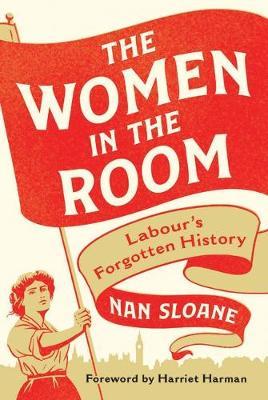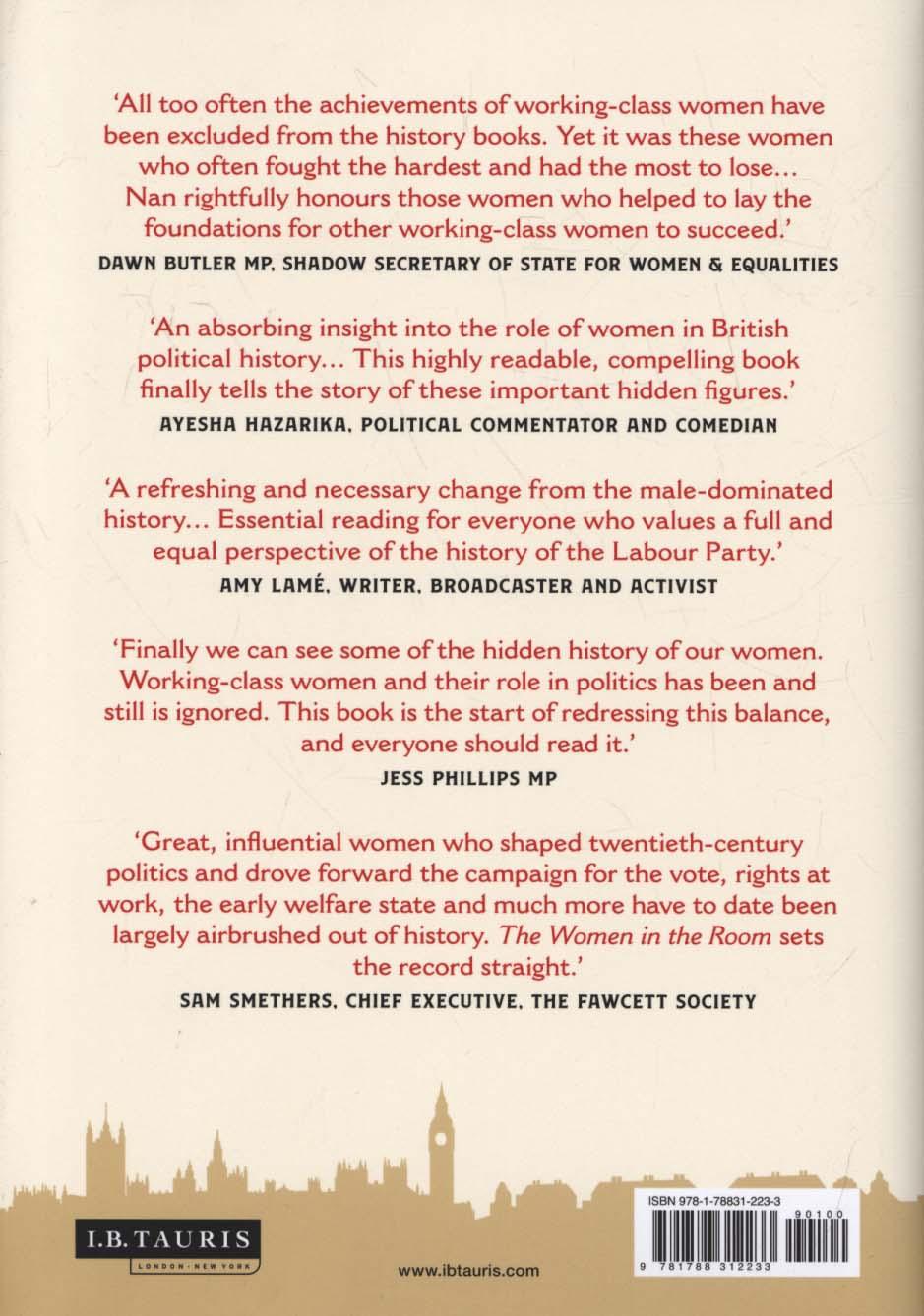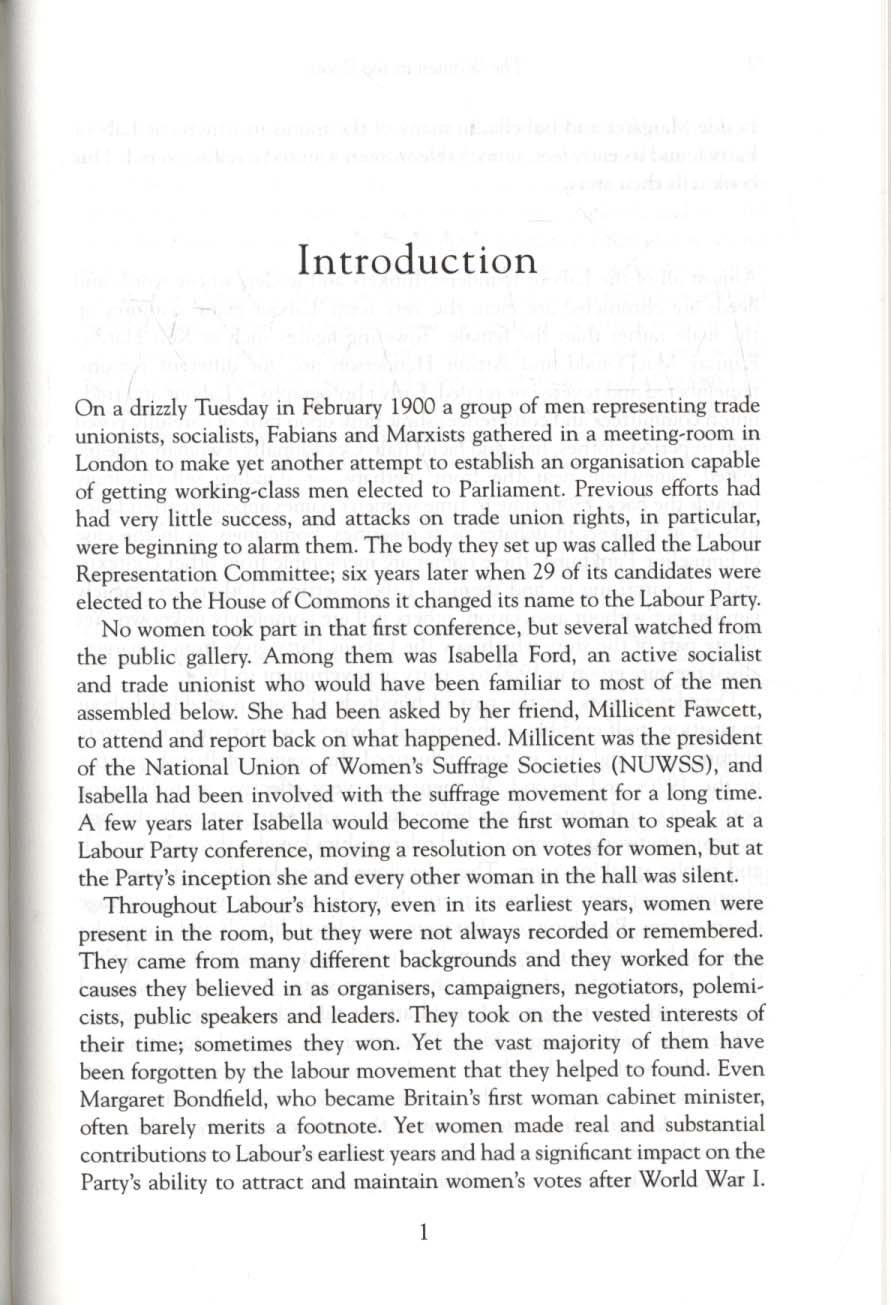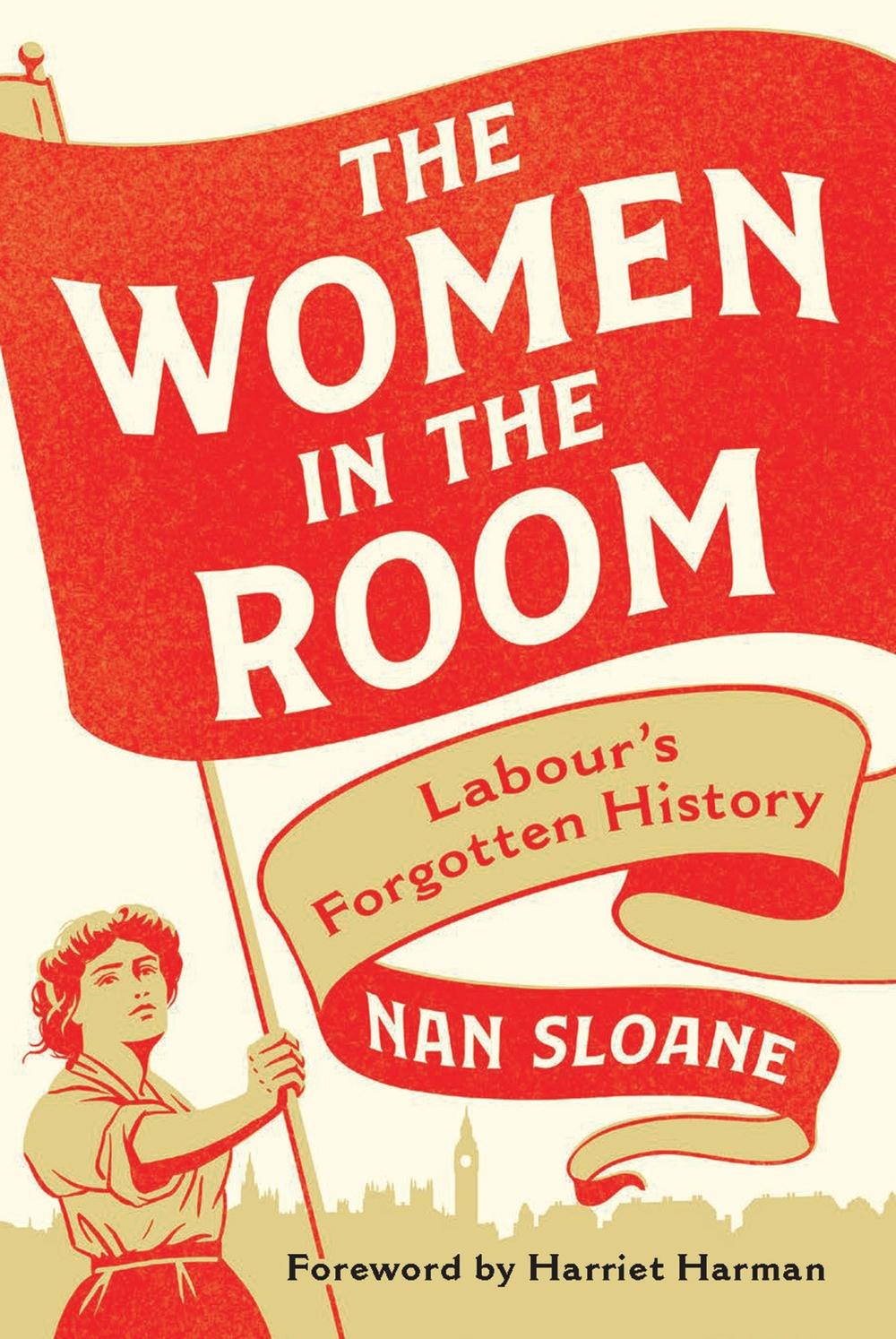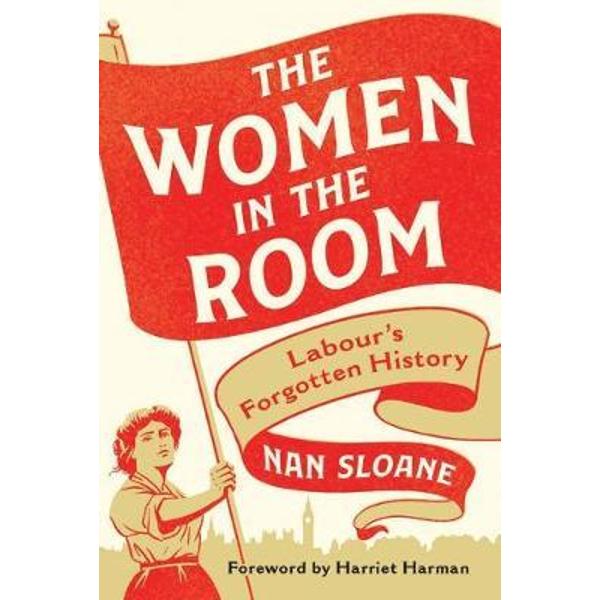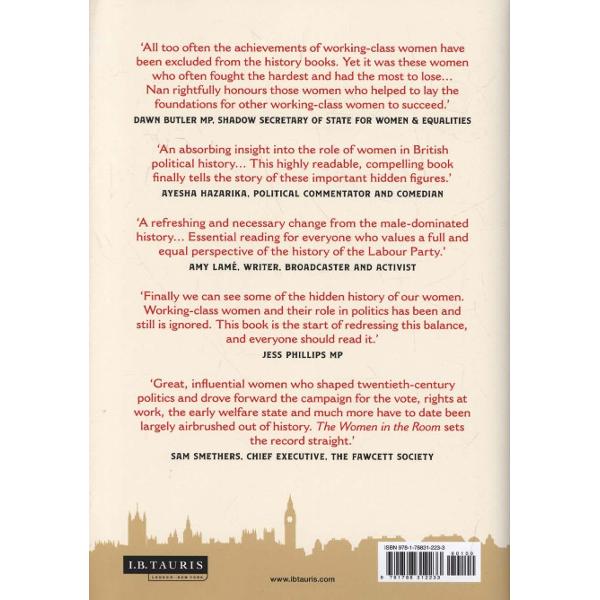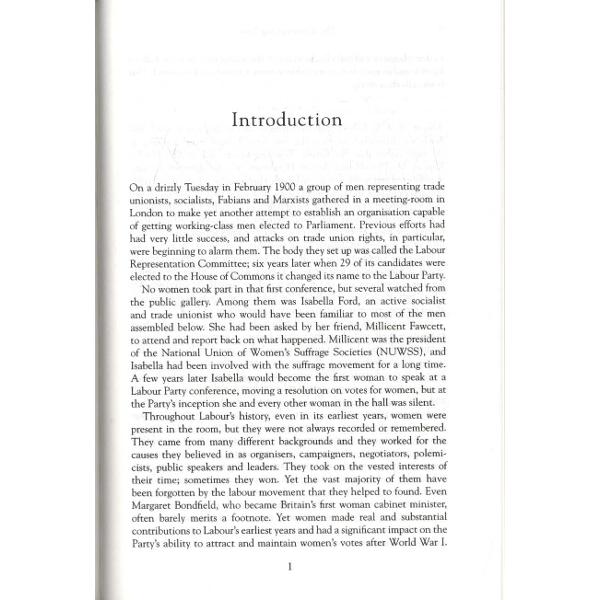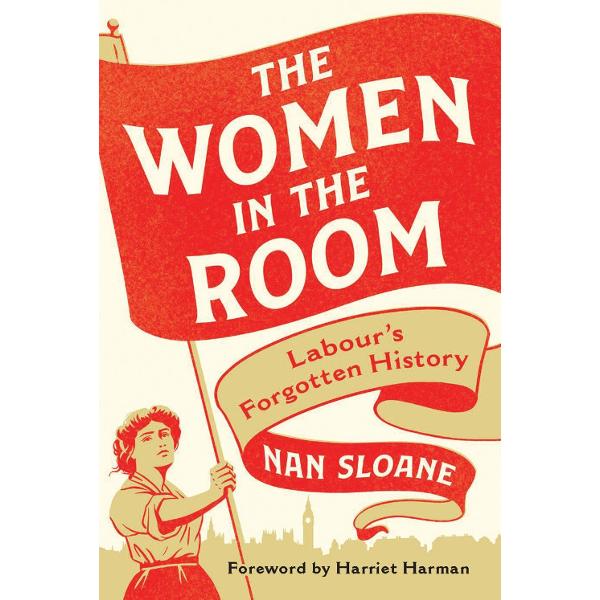Women in the Room
Women in the Room
No women took part in that first meeting, but several watched from the public gallery. Amongst them was Isabella Ford, an active socialist and trade unionist who would have been familiar to most of the men assembled below. She had been asked by her friend, Millicent Fawcett, to attend and report back on what happened. Millicent was the President of the National Union of Women's Suffrage Societies, and Isabella had been involved with the suffrage movement for a long time. A few years later she would become the first woman to speak at a Labour Party conference, moving a resolution on votes for women but, at the Party's inception in 1900, she and every other woman in the hall was silent.
Throughout Labour's history, even in its earliest years, women were present in the room, but they were not always recorded or remembered. They came from many different backgrounds and they worked for the causes they believed in as organisers, campaigners, negotiators, polemicists, public speakers and leaders. They took on the vested interests of their time; sometimes they won. Yet the vast majority of them have been forgotten by the Labour movement that they helped to found. Even Margaret Bondfield, who became Britain's first woman cabinet minister, often barely merits a footnote. Women made real and substantial contributions to Labour's earliest years and had a significant impact on the Party's ability to attract and maintain women's votes after World War I. In addition to Margaret and Isabella, in many of the rooms in which the Labour Party found its feet, remarkable women wait to be rediscovered. This book tells their story.
PRP: 340.00 Lei
Acesta este Prețul Recomandat de Producător. Prețul de vânzare al produsului este afișat mai jos.
306.00Lei
306.00Lei
340.00 LeiIndisponibil
Descrierea produsului
No women took part in that first meeting, but several watched from the public gallery. Amongst them was Isabella Ford, an active socialist and trade unionist who would have been familiar to most of the men assembled below. She had been asked by her friend, Millicent Fawcett, to attend and report back on what happened. Millicent was the President of the National Union of Women's Suffrage Societies, and Isabella had been involved with the suffrage movement for a long time. A few years later she would become the first woman to speak at a Labour Party conference, moving a resolution on votes for women but, at the Party's inception in 1900, she and every other woman in the hall was silent.
Throughout Labour's history, even in its earliest years, women were present in the room, but they were not always recorded or remembered. They came from many different backgrounds and they worked for the causes they believed in as organisers, campaigners, negotiators, polemicists, public speakers and leaders. They took on the vested interests of their time; sometimes they won. Yet the vast majority of them have been forgotten by the Labour movement that they helped to found. Even Margaret Bondfield, who became Britain's first woman cabinet minister, often barely merits a footnote. Women made real and substantial contributions to Labour's earliest years and had a significant impact on the Party's ability to attract and maintain women's votes after World War I. In addition to Margaret and Isabella, in many of the rooms in which the Labour Party found its feet, remarkable women wait to be rediscovered. This book tells their story.
Detaliile produsului









